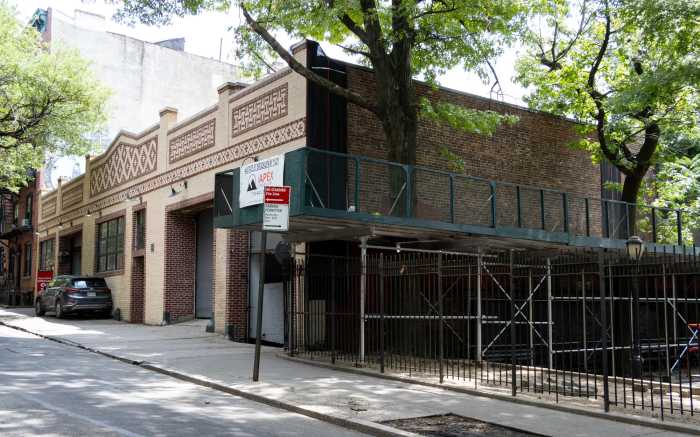Atlantic Yards developer Bruce Ratner won an important court victory against nine property owners inside the project’s footprint who had argued that the state Constitution bars the use of eminent domain for any development that includes luxury housing.
Ratner reveled in last Thursday’s unanimous decision by the Appellate Division of the Supreme Court, saying it would allow construction on the long-awaited basketball arena to begin later this year.
“We’re thrilled,” Ratner said in a statement. “The world has changed significantly since we announced this project in December, 2003. But one thing has never changed — [our] commitment to bringing the Nets to Brooklyn and building an arena and residential community that will make the people of Brooklyn and the entire city proud.”
The lawsuit was actually against the Empire State Development Corporation, which plans to condemn the nine properties and then transfer them to Forest City Ratner, which owns many properties within the 22-acre project site in Prospect Heights and has a deal to acquire development rights over the rail yard at the core of the development.
At issue was a claim by the nine landowners that the state Constitution forbids eminent domain on a project that includes luxury housing because the Public Use clause requires that “the occupancy of any such project shall be restricted to persons of low income.”
The opponents also said eminent domain could not be used because the project confers a huge benefit to Ratner yet only an “incidental” one for the public.
But the court disagreed.
“It cannot be said that the public benefits which the Atlantic Yards project is expected to yield are incidental … in comparison to the benefit that will be bestowed upon the project’s private developer,” wrote Justice Randall Eng, referring to benefits of the overall project that include the proposed basketball arena and development over the scar-like rail yard.
The plaintiffs said they would appeal the ruling.
“We’re optimistic that the Court of Appeals [the state’s highest court] will see the importance of setting clear boundaries between constitutional and unconstitutional uses of eminent domain in New York State,” said Candace Carponter, the legal director for Develop Don’t Destroy Brooklyn.
Despite the good court news, Ratner is still facing his largest hurdle: lining up financing for his $4-billion project during a historic credit crunch.


























